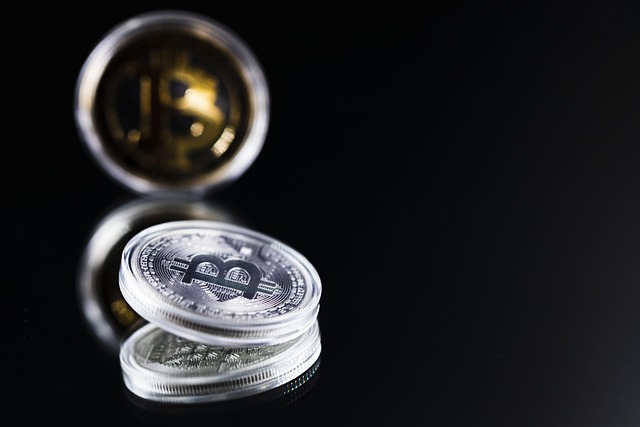The cryptocurrency world has grown from a niche experiment into a global financial revolution. As digital assets continue to gain traction, both investors and tech enthusiasts are becoming increasingly interested in the leading coins that drive the market.

pixabay.com
Whether you’re new to crypto or a seasoned trader, understanding the most popular cryptocurrencies is essential for navigating this dynamic landscape. In this article, we’ll explore the top 5 cryptocurrencies in the world as of 2025, highlighting their features, use cases, and why they continue to dominate the digital finance ecosystem.
1. Bitcoin (BTC) – The Original Digital Gold
Market Cap: Over $800 Billion
Launch Year: 2009
Creator: Satoshi Nakamoto
Why Bitcoin is Popular
Bitcoin remains the most recognized and valuable cryptocurrency in the world. Often referred to as “digital gold,” Bitcoin was the first successful blockchain-based currency and is considered the foundation of the entire cryptocurrency industry.
Its popularity comes from several factors:
- First-mover advantage
- Limited supply (21 million coins)
- Widespread adoption
- High security through proof-of-work consensus
Bitcoin is now accepted as payment by many businesses, held in institutional portfolios, and used as a hedge against inflation in some countries. Despite market volatility, Bitcoin has consistently proven its resilience.
Use Cases
- Store of value
- Peer-to-peer transactions
- Asset diversification
- International remittances
2. Ethereum (ETH) – The Smart Contract Pioneer
Market Cap: Over $400 Billion
Launch Year: 2015
Creator: Vitalik Buterin and team
Why Ethereum is Popular
Ethereum introduced smart contracts, self-executing agreements coded on the blockchain, revolutionizing how decentralized applications (dApps) are built. This feature enabled the creation of DeFi (Decentralized Finance), NFTs (Non-Fungible Tokens), DAOs (Decentralized Autonomous Organizations), and much more.
In 2022, Ethereum transitioned from proof-of-work to proof-of-stake with “The Merge,” making it more energy-efficient and scalable. This shift boosted investor confidence and expanded its potential for long-term growth.
Use Cases
- Decentralized finance (DeFi)
- NFT marketplaces
- dApp development
- DAOs and tokenization
3. Binance Coin (BNB) – Powering the World’s Largest Exchange
Market Cap: Over $80 Billion
Launch Year: 2017
Creator: Binance Exchange (founded by Changpeng Zhao)
Why BNB is Popular
Binance Coin was originally launched as a utility token for Binance, the world’s largest cryptocurrency exchange by volume. Initially used to pay for trading fees at a discount, BNB has evolved into a versatile token used in a wide range of applications.
BNB now powers the BNB Chain (formerly Binance Smart Chain), a fast and low-cost blockchain supporting smart contracts and decentralized apps. Its popularity is boosted by Binance’s global reach and continued ecosystem growth.
Use Cases
- Transaction fees on Binance
- Smart contract deployment on BNB Chain
- Yield farming and staking
- Payments and token swaps
4. Solana (SOL) – The Speed Demon of Blockchain
Market Cap: Over $60 Billion
Launch Year: 2020
Creator: Anatoly Yakovenko
Why Solana is Popular
Solana gained attention for its blazing-fast transaction speeds and low fees, solving key scalability problems that Ethereum struggled with before its upgrade. Solana can handle thousands of transactions per second thanks to its unique proof-of-history (PoH) consensus mechanism combined with proof-of-stake (PoS).
Its performance has made Solana a go-to platform for NFT projects, DeFi protocols, and gaming dApps. Despite occasional network outages, it has maintained a strong community and developer interest.
Use Cases
- Decentralized apps (dApps)
- NFT marketplaces (e.g., Magic Eden)
- DeFi platforms (e.g., Raydium)
- Blockchain-based gaming
5. Ripple (XRP) – Bridging Traditional Finance and Blockchain
Market Cap: Over $50 Billion
Launch Year: 2012
Creator: Ripple Labs
Why XRP is Popular
XRP is the native token of the Ripple Network, designed to facilitate fast and low-cost cross-border payments. Unlike Bitcoin or Ethereum, XRP does not rely on mining; instead, transactions are validated by a consensus protocol among trusted nodes.
Ripple’s partnerships with financial institutions like Santander, American Express, and SBI Holdings highlight its focus on bridging the gap between blockchain and traditional finance.
In 2023, Ripple achieved a partial legal victory in its long-standing battle with the U.S. SEC, clarifying that XRP is not a security when sold on public exchanges. This legal clarity sparked renewed interest and price surges.
Use Cases
- International money transfers
- Bank-to-bank payments
- Liquidity for financial institutions
- Payment rail for remittances
Honorable Mentions
While these five cryptocurrencies dominate headlines and market share, several others deserve mention due to their technological innovation and growing user base:
- Cardano (ADA): A research-driven blockchain focused on scalability and sustainability.
- Polygon (MATIC): A layer-2 scaling solution for Ethereum.
- Dogecoin (DOGE): A meme coin turned serious contender, bolstered by community and celebrity support.
Final Thoughts
The cryptocurrency space is rapidly evolving, and the most popular coins today continue to shape the direction of digital finance. From Bitcoin’s role as a store of value to Ethereum’s smart contract revolution and Solana’s high-speed capabilities, each of these cryptocurrencies offers unique benefits and use cases.
However, popularity does not guarantee long-term success. Investors and enthusiasts should stay informed, conduct thorough research, and consider both risks and opportunities when participating in the crypto market.
As blockchain technology matures, these top cryptocurrencies are likely to remain at the forefront — driving innovation, adoption, and the future of money itself.
Frequently Asked Questions (FAQs)
Q: What is the most valuable cryptocurrency?
A: Bitcoin (BTC) is the most valuable cryptocurrency by market capitalization and price.
Q: Is Ethereum better than Bitcoin?
A: Not necessarily. Bitcoin is considered digital gold, while Ethereum offers more use cases through smart contracts. They serve different purposes.
Q: Are cryptocurrencies safe to invest in?
A: Crypto investments carry risk due to volatility and regulatory uncertainty. Always do your own research and consider using secure wallets.
Q: Can I use crypto for daily purchases?
A: Yes, many merchants accept crypto, and crypto debit cards make everyday spending easier. However, adoption varies by region.